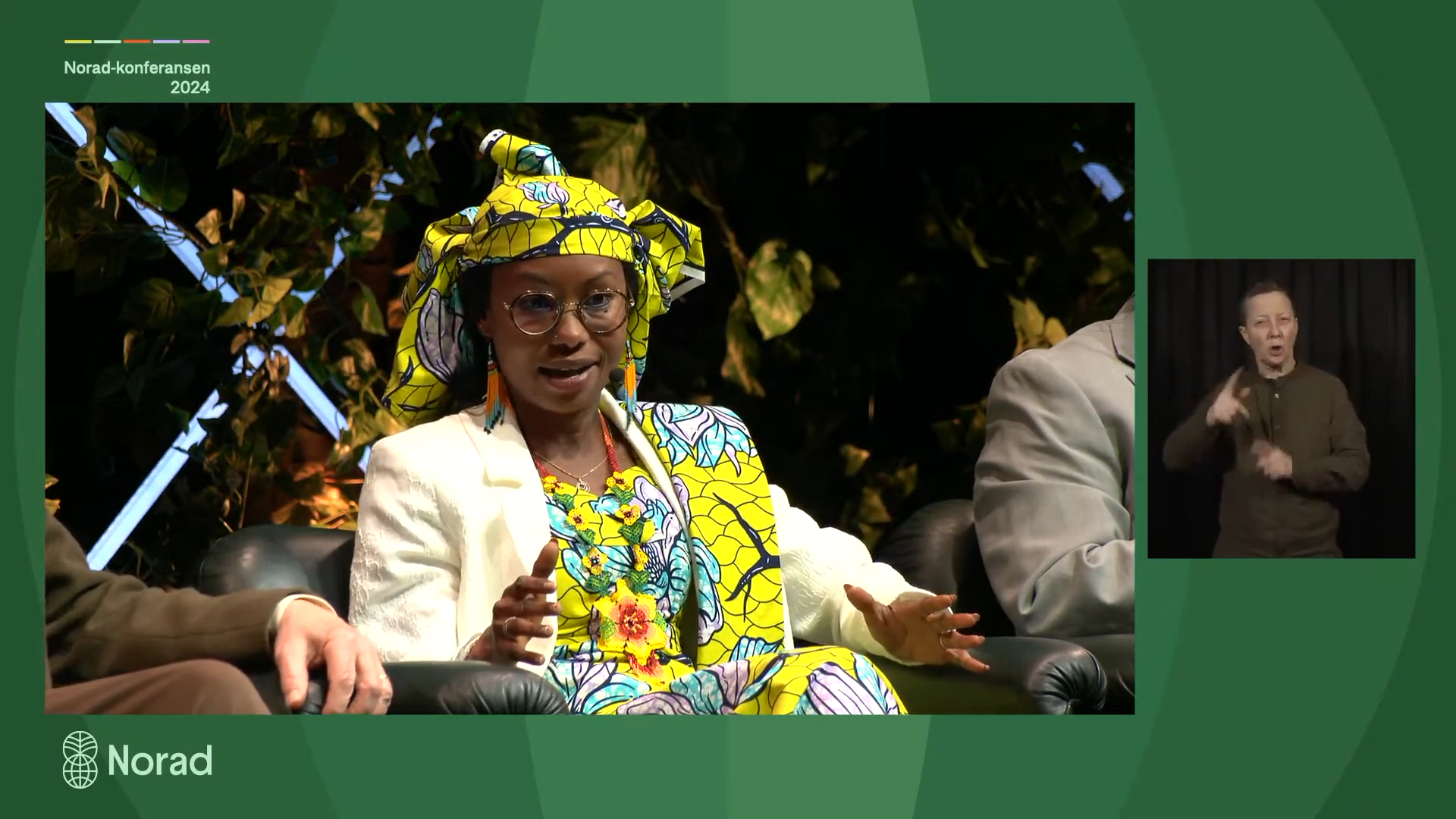2024-02-02
Norad panel discussion: Are communal land rights making a comeback?
Hindou Ibrahim’s grandmother is no expert when it comes to Excel spreadsheets. But when it comes to her territory, she’s the leading authority.
“My grandmother is the best one who can tell you if it’s going to rain in the next hour,” Ibrahim, an indigenous rights activist from Chad, told an audience in Oslo. “She’s the best one who can protect her land.”
Speaking at the 2024 annual conference of the Norwegian Agency for Development Cooperation (Norad), Ibrahim hammered home her point on how the abilities of Indigenous Peoples are too often praised in one regard but discounted in another.
“People are happy that we are the best protectors of our nature,” she said. “And when it comes to finance, they say, ‘they need capacity building; they do not know how to do that.’”
Ibrahim’s remarks were part of a panel discussion on the benefits of and challenges to communal land rights. It was hosted by Nonette Royo, executive director of Tenure Facility, which is supported by Norad. During the discussion, panellists agreed that indigenous and local communities are essential in the fight against climate change, an argument that was far from settled a few decades ago.

Chadian indigenous rights activist Hindou Ibrahim speaking at the Norad conference.
“In the beginning, the issue of rights was not integrated into an environmental agenda. You should protect the trees and you should not talk about the people,” said panellist Lars Løvold, founder of Rainforest Foundation Norway.
Thankfully, that thinking has changed. Yet obstacles and prejudices remain.
Carlos Manuel Rodriguez, a Costa Rican former politician and current CEO and chairperson of the Global Environment Facility, said direct financial support to indigenous communities is still lagging. He said global systems need to change to recognise the importance of financial independence for indigenous communities and the need for their full incorporation into governing bodies and decision-making processes.
“If the Indigenous People own 40% of the forests of the planet … we need to create adjustments to the market, so they are fully recognised by what they have and how they use,” he said.
Articles